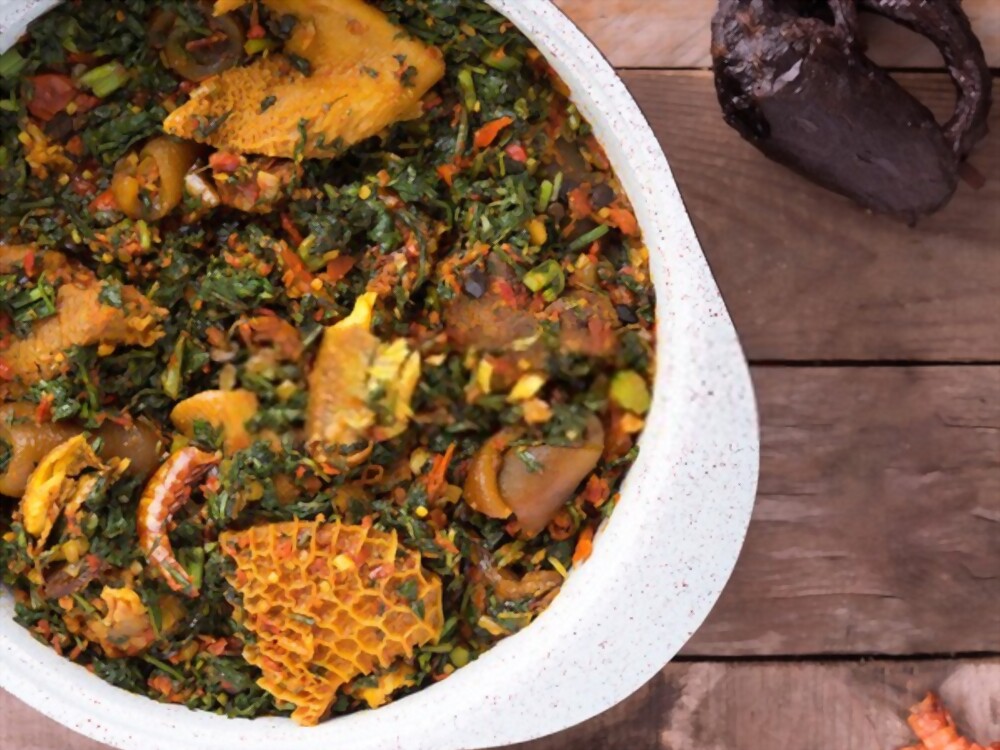Nigeria is not only rich in culture but also in its delicacies; it reflects the country’s diverse cultural heritage. Nigerian dishes are known for their bold and spicy flavours. And diverse kinds of herbs and spices. However, only some people know that Nigerian cuisine has a solid connection to soul food.
Irrespective of what you want, Nigerian soul food has something for everyone, whether at a family gathering or a local indigenous restaurant. In this article, We will explore various Nigerian soul foods and their importance, especially as part of Nigerian cultural heritage, but before we jump into that;
Table of Contents
What is Soul Food?
Soul food is a type of cuisine that originated in African American communities in the southern United States. It is a combination of traditional African cooking techniques and the ingredients that were available to enslaved people in the American South. Meanwhile, Nigerian Soul food can be defined as a bit different from normal soul food.
What is Nigerian Soul Food?
Nigerian soul food refers to traditional cuisine deeply rooted in Nigeria’s history, culture, and geography. It is characterized by bold flavours, vibrant colours, and diverse ingredients that create various dishes.
It encompasses various dishes across different regions and ethnic groups within the country, from the northern states’ spicy and robust flavours to the coastal areas’ vibrant tastes. Nigerians love their food, from stews to puddings, and there is something for everyone.
Key ingredients such as palm oil, cassava, Yam, plantain, beans, and spices like scent leaves, ginger, and garlic lend a unique and unmistakable flavour profile to Nigerian soul food.
Read Also: Nigerian Food Recipes You Must Know Before You Are 25
Some Examples of Nigerian Soul Food
Many staple foods and sauces used in Nigerian cuisine have roots in the cooking techniques and ingredients enslaved Africans in the American South used. Okra soup, Jollof rice, and Suya are Nigerian dishes similar to soul food.
More examples of Nigerian soul food include;
-
Egusi soup
Egusi soup is a thick, hearty soup made with ground melon seeds, vegetables, and various meats or fish. It is often seasoned with traditional Nigerian spices and palm oil, giving it a rich and nutty flavour.
-
Efo riro
Efo Riro is a vegetable soup made with various green leafy vegetables such as spinach, pumpkin leaves, or kale. It is typically cooked with assorted meat, fish, or seafood and flavoured with spices, palm oil, and locust beans. Efo Riro is often enjoyed with a side of pounded Yam or fufu.
-
Pounded yam
Pounded Yam is a staple food in Nigeria. It is made by boiling Yam until tender and then pounding it until it becomes smooth and stretchy.
-
Akara
Akara, also known as bean cakes, is made by grinding black-eyed peas or beans into a paste, seasoning it with onions, peppers, and spices, and deep-frying it until golden brown. Akara is usually served with pap (a cornmeal porridge) or bread.
-
Moi moi
This steamed bean pudding is made from pureed black-eyed peas or beans mixed with onions, peppers, and spices. It is often cooked in banana leaves or foil wrappers and served as a side dish or snack. Moi Moi is enjoyed with various accompaniments, such as fried plantains, rice, or bread.
-
Jollof rice
Jollof rice is a classic Nigerian dish made with rice, tomatoes, onions, and a blend of spices. It is cooked in a flavorful tomato-based sauce and often served with fried plantains and chicken or beef.
-
Suya
A spicy and grilled meat skewer that is popular street food in Nigeria.
-
Puff-puff
It is a sweet and fluffy snack made with flour, yeast, sugar, and water.
These are just a few examples of Nigeria’s soul food. Nigerian cuisine is diverse, and each region within the country has its unique dishes and flavours.
Are you already craving these meals, but your pocket says something else? Subscribe to our newsletter to get financial tips and updates.
Why You Should Care About Nigerian Soul Food
Nigerian soul food not only tantalizes taste buds but also carries deep cultural significance, connecting people to their heritage and fostering community; that is why you as a Nigerian should care about Nigerian soul food for the following reasons:
-
Cultural identity
Nigerian soul food represents the country’s rich cultural heritage and is deeply rooted in Nigerian traditions, customs, and history. By preserving and celebrating it, Nigerians maintain a solid connection to their cultural identity and pass down these culinary traditions to future generations.
-
Community bonding
It often brings people together. It is common for families and friends to gather around a meal, share stories, and enjoy the flavours of traditional dishes. By embracing Nigerian soul food, Nigerians foster a sense of community and strengthen social bonds within their families and communities.
-
Nutritional value
It often incorporates a variety of nutritious ingredients such as vegetables, legumes, and lean proteins. The consumption of traditional Nigerian dishes can ensure that Nigerians enjoy wholesome and nourishing meals that contribute to their overall health and well-being.
Read also: Body-building foods to eat as a Nigerian
-
Economic impact
The appreciation and promotion of Nigerian soul food can have a positive economic impact. It can support local farmers, food producers, and businesses specializing in producing and distributing Nigerian ingredients and products. Nigerians can contribute to the growth of their local economy by supporting these local enterprises,
-
Tourism and cultural exchange
It has the potential to attract tourists and promote cultural exchange as people worldwide become more curious about Nigerian cuisine, its demand increases. This, in turn, can boost tourism and create opportunities for cultural exchange, allowing Nigerians to share their culinary traditions with the world.
-
Sense of pride
Embracing and celebrating Nigerian soul food can instill a sense of pride among Nigerians. It allows them to showcase their unique food culture and demonstrate the richness and diversity of Nigerian cuisine. Nigerians can cultivate a sense of self-worth and promote positive cultural representation by appreciating and valuing their culinary traditions.
Conclusion
With its diverse dishes and cooking styles, Nigerian cuisine has a solid connection to soul food. In Nigeria, soul food is more than just a type of cuisine – it is a way to connect with family, community, and heritage. Through soul food, Nigerians celebrate their culture and preserve their traditions.
Food is essential for healthy living, but achieving that is impossible without money to buy them. Are you interested in some intelligent work and passive income sources? Join our WhatsApp community today to learn about earning passively.
Author: Precious Fawole
Edited by Emmanuel Odebiyi
About Author
- Op-Ed are articles published by guest authors. We no longer accept guest posts. However, we are still open to adding long-term content contributors to our team of insightful writers. To write for us, please check out inisght.ng/guest-post.
Latest entries
 Business InsightsMarch 27, 2024Effective Strategies for Managing Cash Flow in a Nigerian Business
Business InsightsMarch 27, 2024Effective Strategies for Managing Cash Flow in a Nigerian Business

 Business InsightsFebruary 12, 2024Privacy Policy for Business Websites: All You Need to Know
Business InsightsFebruary 12, 2024Privacy Policy for Business Websites: All You Need to Know

